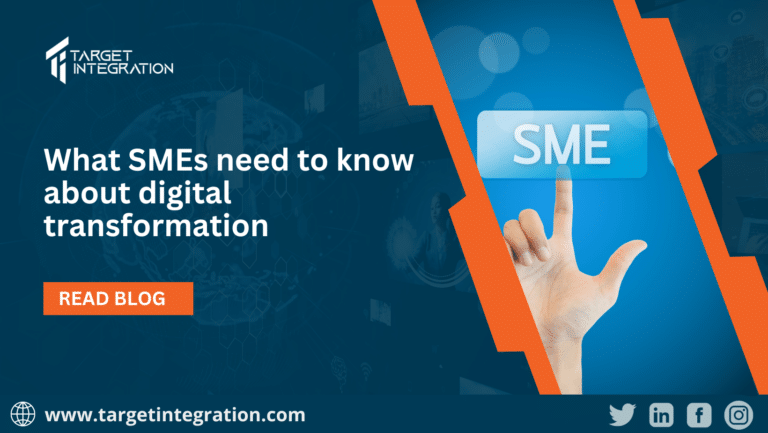Cloud technology integrated with software-as-a-service (SaaS) is rapidly turning out to be an advance innovation, and with this advancement comes the ability to take on the most demanding applications. Enterprise resource planning (ERP) software is undoubtedly capable of enduring these challenges. An online ERP Software presently offers a mind-boggling range of credible outcomes plus advantages to large and small organisations. Let us understand how?
The various advantages of Cloud-Based ERP software expand to a large base of verticals and industry-specific needs. Automation is even benefiting production networks and manufacturing models. Many organisations have already actualised online ERP systems and are seeing amazing outcomes.
For small and medium organisations, maintaining smooth operations is of absolute importance. This is the reason that a large number of developing companies and establishments are selecting ERP saas to enhance their operations over on-premise fixed software. They are finding ERP software as the one-stop software for all their operational needs.
A web-based ERP in Ireland would streamline your operations as well as help you in unifying your departments with better data handling capacities. It can also improve representative effectiveness by precisely measuring the depth and breadth of the current system through dashboards and real-time reporting. Still not able to decide whether you should get an ERP for your business or not? Here are a couple of features of a cloud-based ERP software that would help you know how it can be a value-addition in business profitability and perhaps why you should go ahead with it.ERP won’t cost you a bomb, and it’s a fairly minimalistic effort framework to deploy and use. There are ERP software licenses that can be purchased as per user needs. A lot of ERP software plans come with a subscription model. You can pay monthly and yearly as per your industry needs. Check out our ERP software implementation plans here. Our certified software consultants have a smooth ERP implementation for your business.Another reason why ERP software is ending up being financially savvy can be attributed to the complete training with a proper knowledge base given to the client. These are provided in stages and they can be even department-specific so that the usage of an ERP system can be smooth and convenient. Moreover, you can opt whether you need to get complete software training or want to start with particular features first. It is understood that non -technical person can’t gulf the whole software in one day. Therefore, the training incorporates a ton of e-learning and spotlights mainly on the features given by the company. Check out CRM/ERP training available at Target Integration.The one major advantage of utilising an ERP saas from an implementation partner for your small and medium business is the fact that it is observed and maintained externally by the seller/reseller or a software partner. What this means is that you don’t have to assign a separate IT team to take care of ERP software. So, you don’t have to invest a single penny for IT infrastructure. No need to hire IT resources to handle it. There are no additional costs that may increase your overall use of the ERP software disrupting your peace of mind. Adaptability is one of the main advantages of online ERP systems. The way these days businesses are developing and transforming is affecting human resources and their skill sets too. New representatives are being added consistently in an organisation. Therefore, it becomes prime importance that the software should be customisable and adaptable quickly and easily. Complex ERP software leads to nuisance in a non-technical environment. But these days, every ERP software vendor is highly conscious of customer experience and user-friendliness for their products. Also, there are new clients, and subsequent modifications needed to be made without hampering the current infrastructure. An ERP Software with sole access to the internet is capable of all these minor and major tunings.One of the critical features of web-based ERP is the decision of picking adaptable plans. As examined previously, there are no forthright costs included. Maintenance costs are also low. The only costs that you need to bear are the month-to-month charges which are calculated according to the usage. This makes ERP saas more cost-saver than a liability! Cloud technology has facilitated remote work. So for instance, if a company has its headquarters in one city and another branch of the same company is opened in another part of the world, the new setup will have access to the same facilities and IT infrastructure as it is. Without setting up separate hardware and additional costs, this technology will reach out easily and conveniently to various areas across the globe at the same time. This is another one great manner where ERP tremendously helps organisations.When you reach a point where you are working with tons of data, it’s natural that you need to protect it. This would create a high demand to incorporate data security, data recuperation, and data assurance. In case of a disaster, you would not have to stress over the data recovery on ERP that has chances to be lost/stolen. In an online ERP system, data security is of prime importance and it has various levels of encryptions installed in advance that prevents data leakage. Additionally, you can restore all your data without having to fall back on IT teams. It’s that easy, convenient, and safe to use.ERP software allows you to rapidly experience the installation cycle and start work instantly. Because there is no need to install separate applications, the entire framework works in synchronicity. You can integrate various business applications together and get real-time data flowing with complete transparency across the systems. This is a major advantage for your business, especially for small and medium enterprises where fast action is highly practiced on an almost daily basis!
Need ERP software for your SME? Contact us!Hence, more or less, ERP software is perhaps the most ideal way to handle operations in your company. It acts rapidly and is reasonable, it has the ability to associate your workplaces across the globe. It is highly effective especially while accepting rapid changes and continuous amendments.
Now, you understand why scalability can be a major drawback for an on-premise ERP framework. An on-premise framework requires a complete IT infrastructure and without even single hardware, all its operations effect is wholesome. Above all, the troubles of updating a large ERP framework are notable. If you talk about advance and future innovations such as IoT(Internet of Things) and IoT gadgets, it adds even more tension to the whole argument.
But alternatively, Cloud-Based ERP frameworks are way too scalable. Almost all online ERP systems offer scalability choices that are ideal for developing organisations. For example, adding more clients and licenses when a business enlists more representatives, or getting more or less storage, and scope of adding/reducing capabilities for new plants and manufacturing measures.
This takes into account that if you consider choosing ERP saas, then it can adapt to frequent changes. A web-based ERP framework can improve a company’s ability to scale rapidly and take on new workers along with partners in no time. While scaling any on-premise ERP framework, it will present challenges inevitably, whereas online ERP systems have demonstrated that its operating standards are particularly appropriate to meet any challenges related to scalability. Each ERP software available through the web suite has solid purposes of its own, and each business has to evaluate how each choice addresses or doesn’t meet its issues.
Almost a decade ago, ERP saas was exciting yet to some it appeared to be a largely problematic innovation. Presently, it’s rapidly turning into the best quality level. It is a fast and ideal opportunity to value. By certain estimates, 66% of organisations utilising ERP software currently use web-based alternatives. The wave of things to come is in SaaS and online computing advancements that would further offer adaptable systems with low barriers.
Utilising the new features and offerings by cloud-based ERP, organisations of all sorts are proceeding to push forward, innovate, and upgrade at each stage of their digital transformation cycles.
















